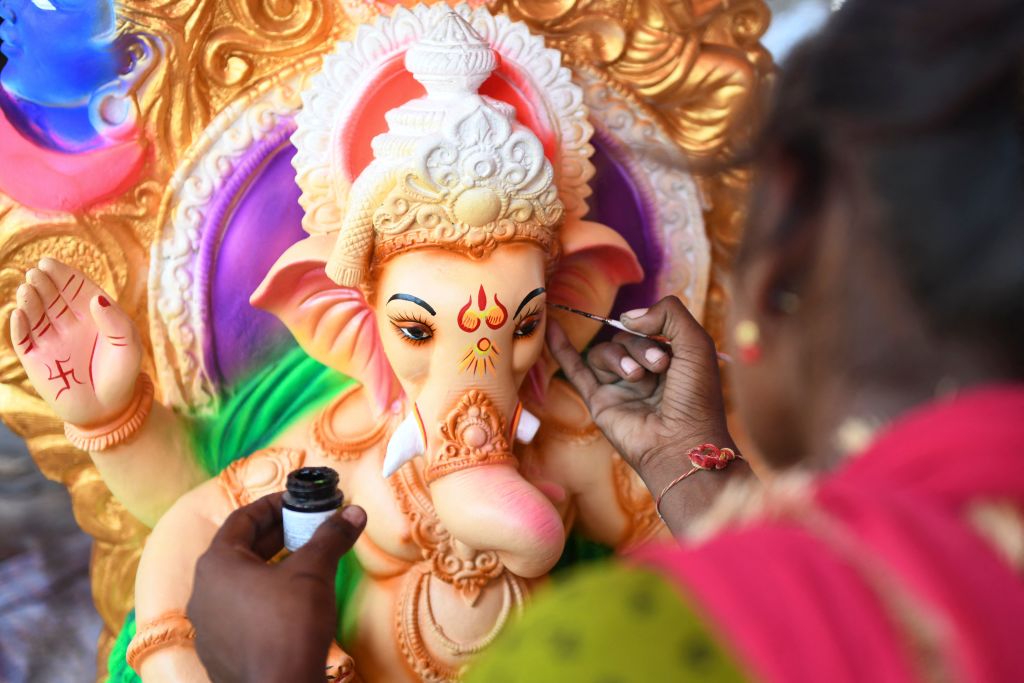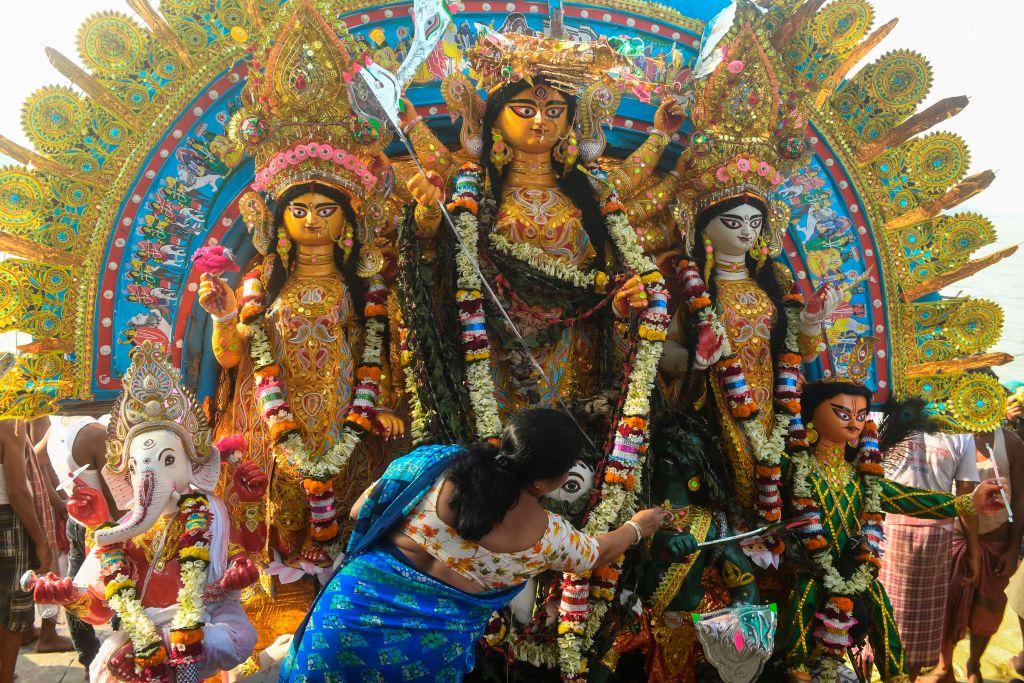- Tuesday, February 25, 2025

By: Shubham Ghosh
AUTHORITIES in India have decided to put a curb on major religious festivals that kick off this year and attract huge crowds as warning grows strong about yet another Covid wave sweeping the country of more than 1.3 billion people.
Governments of various states across the country, which saw a deadly second wave in April-May leaving several thousands of people dead, are also clamping down on mass gatherings because of the festivals.
India is set to witness Ganesh Chaturthi, the worship of the elephant-headed god, starting Friday (10).
The civic authorities in the western Indian city of Mumbai, which is also called the nation’s financial capital, have warned that the third wave is already here.
“The third wave is not coming, it is already here,” Kishori Pednekar, the city’s mayor, told reporters on Tuesday (7).
“We can celebrate festivals later. Let us first prioritise the lives and health of our citizens,” Uddhav Thackeray, the chief minister of Maharashtra, of which Mumbai is the capital, said.
Maharashtra celebrates the 11-day long Ganesh Chaturthi festival in a grand way. Last year, too, the festivals were restricted to curb the infection rate and the authorities are not taking any chances this year as well.
The second wave took place after the Kumbh Mela, one of the largest religious gatherings in the world, took place in the northern Indian state of Uttarakhand. The event saw an assembly of around 25 million Hindu pilgrims despite experts’ warning that it would prove to be a super spreader. Election rallies held around then were also held responsible for the surge in cases.
Officials have said that the recent increase in cases in the southern Indian state of Kerala after the Onam festival should also ring an alarm.

However, crowds were seen at market places in Maharashtra and other states in recent days despite warnings. Various state governments have also decided to restrict the height of the Ganesha idol so that a large number of people do not carry them during the festival, reducing the chances of transmission.
The civic body of Mumbai issued guidelines on Tuesday (7) for the upcoming Ganpati festival beginning Friday (10) in the wake of the Covid-19 pandemic. It has banned physical darshan (viewing) for devotees at public pandals besides imposing restrictions on the number of participants taking part in processions during the celebrations.
As per the new guidelines issued by Brihanmumbai Municipal Corporation (BMC), not more than 10 people will be allowed to take part in the processions of public Ganesh Pujas and not more than five for the household ones. The guidelines also included instructions to strictly follow Covid protocols.
“All devotees should wear masks and observe social distancing. Also, the 10 participants should have taken both the doses of COVID-19 vaccine and completed 15 days after taking the second dose,” the guidelines said.
“Considering the potential danger of a third COVID-19 wave, devotees are strictly forbidden from taking darshan. It has been decided that Ganeshotsav mandals should provide darshan facility to devotees through cable network, website, Facebook or (other) social media,” the civic body said.
The mandals falling in COVID-19 containment zones will have to make arrangements for the immersion of the Ganpati idols in the pandal premises or postpone it. Similarly, in sealed buildings, devotees will have to make arrangements for the immersion of idols at home, it said. If a house/building is declared a containment zone, the rules for it should be followed during the festival, it added.
The civic body has also restricted the height of household Ganpati idols to two feet and for the public mandals to four feet. The cap on the height of Ganpati idols and restrictions on celebrations have been imposed for the second year in a row to curb the spread of the Covid.
The BMC appealed to people to avoid any action that may lead to the spread of the pandemic and said in case of any violation of rules, strict action would be taken under provisions of the Indian Penal Code, the Epidemic Diseases Act and the Disaster Management Act. On Tuesday, Mumbai reported 353 new COVID-19 cases and two fresh fatalities, which took the infection tally to 7,47,078 and the death toll to 16,000, as per official data.
In the national capital Delhi, the Delhi Disaster Management Authority (DDMA) barred public celebrations of Ganesh Chaturthi in view of the pandemic.
In an order issued on Tuesday, the DDMA said that district magistrates and deputy commissioners of police will ensure that idols of Lord Ganesha are not set up in a tent or pandal. It should be ensured that crowds do not gather at any religious or social place, the DDMA said, adding that permission will also not be granted for any procession.
The DDMA advised people to celebrate the festival at home.
“Ganesh Chaturthi will be celebrated this month and considering the prevailing restrictions on gatherings and congregations and the present situation of the COVID-19 pandemic, it has been decided that the celebrations of the festival may not be allowed in public places,” the order stated.
The recent Janmashtami celebrations were muted in the national capital with devotees not being allowed to visit religious places as part of the preventive measures to curb the spread of Covid.
However, the DDMA is yet to take a call on the holding of Ramlilas even as over 60 Ramlila organisation committees have decided to hold the event in its physical form this year following the nod from concerned authorities.
The national capital on Tuesday recorded a death from Covid-19, the first this month, and 50 fresh cases of the infection, with the positivity rate being 0.07 per cent. The cumulative number of cases stands at 14,38,041.
In Karnataka, which borders Maharashtra to the south, the government has put night curfews in place and said those districts of the state that report higher positive test levels will be banned from holding the Ganesha celebrations.
Tamil Nadu, another southern state, has also banned public celebrations while West Bengal, an eastern state, was likely to put curbs during the nine-day Durga Puja festival next month.
(With PTI inputs)